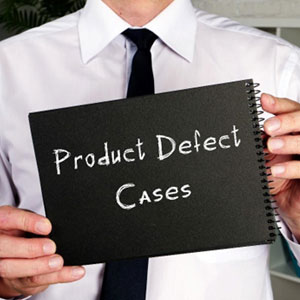Liability In A Defective Product Injury Claim
In the majority of product liability cases, and injured person would typically pursue legal action against the manufacturer of the product. There are also situations where you can also pursue a legal action against the seller of the product. However, in Louisiana, doing this requires demonstrating that the seller either knew or should have known about the product defect, but failed to disclose it. Proving this standard can be quite challenging because most sellers may not be aware of the product’s defect. Nevertheless, in cases where the seller is highly knowledgeable about the product, it’s possible to include them as a co-defendant along with the manufacturer.
Louisiana’s Comparative Fault
In many cases, you can seek compensation even if you bear some responsibility for your injuries. Louisiana has a comparative fault system, where a jury or judge may determine that you share a portion of the responsibility for your injuries. If, for example, a fact finder determines that you are 20% responsible for your injuries, the defendant manufacturer would then be liable for covering only 80% of the damages.
There are also defenses that a product defendant might raise which could result in you not being able to collect any compensation. For example, if the defendant can prove that you were aware of the product’s defect, but still used the product, you may not be able to achieve any compensation for your injuries. However, in most cases, even if you share some responsibility, you can still obtain compensation based on the assigned percentage of fault.
Necessary Evidence For A Strong Product Liability Case
In product liability cases, the most important piece of evidence is the product itself. Typically, it’s critical to hire an expert who can examine the product and assess its defects or its warnings. This expert can also determine the root cause of the injury, and assess whether the injury could have been prevented in any manner.
Given that the product stands as the central piece of evidence in a product liability case, its absence can substantially impede the prosecution of your case. In situations where the product is either destroyed or lost, and there’s no chance for examination, this can present significant hurdles in constructing a viable case.
The Importance of Documenting Your Claim
Seeking immediate medical attention after suffering an injury is crucial for documenting the severity and scope of your condition. When there is a serious injury due to a product, I always advise my clients to document the accident scene as soon and thoroughly as reasonably possible.
For instance, in cases like the Nutribullet blender, where explosions of scalding hot ingredients from the blender can lead to significant injuries, I recommend taking extensive photographs of the accident scene and the blender. This should include capturing the area where the blender caused the injury, where any expelled food landed, the immediate condition of the Nutribullet after the accident, any damage to the room caused by the explosion, and other relevant details.
These product photos, and any accompanying brochures or paperwork, such as instruction manuals, are very helpful and often critical to the success of the lawsuit. In addition, I also ask potential clients to send me any medical information, such as emergency room records.
The Role of Expert Witnesses
As discussed above, in product liability cases expert witnesses play a necessary and critical role. They serve as invaluable support for your claim, particularly when you’re asserting a defective product or inadequate warning claim.
These experts will testify at trial about the product, identify design flaws, and offer details of alternative design solutions that could have been implemented by the manufacturer to prevent the injury. Such evidence is typically essential in product liability cases. It’s safe to say that at some point in your case, you’ll likely require expert testimony to support your claim.
Other Helpful Witnesses
Eyewitnesses can also be immensely helpful in creating a strong case. They can provide a firsthand account of what happened when the accident occurred, and offer crucial support for your testimony concerning the incident. They can also describe your injuries and the pain you endured as a result.
In product liability cases, the testimony of physicians and doctors can also be invaluable, shedding light on the nature of the injury, its effects on the body, and the extent of pain and suffering you experienced. They can also testify regarding future medical and physical limitations.
Damages
In the aftermath of an injury resulting from a defective product, you would typically be entitled to various forms of compensation, including, but not limited to:
- Medical Costs: This includes all the expenses associated with treating the injuries caused by the defective product.
- Pain And Suffering: Both physical and mental, arising from the injuries sustained due to the defective product.
- Lost Wages: Compensation for any missed work due to the injuries from the defective product.
- Loss Of Future Earnings: If the injuries are severe enough to prevent a return to working, the injured person may be entitled to compensation for the loss of future income.
- Loss Of Enjoyment of Life: Depending on the severity of the injuries, a person may be entitled to damages related to the loss of enjoyment of life.
- Future Medical Expenses: To cover future medical care necessitated by the injury. To determine the cost of future medical care, it’s often necessary to consult an expert economist or accountant. A medical expert’s testimony at trial may provide insight into the expected future medical care needs.
For more information on Liability In A Defective Product Injury Claim, an initial consultation is your next best step. Get the information and legal answers you are seeking by calling (504) 527-8767 today.
